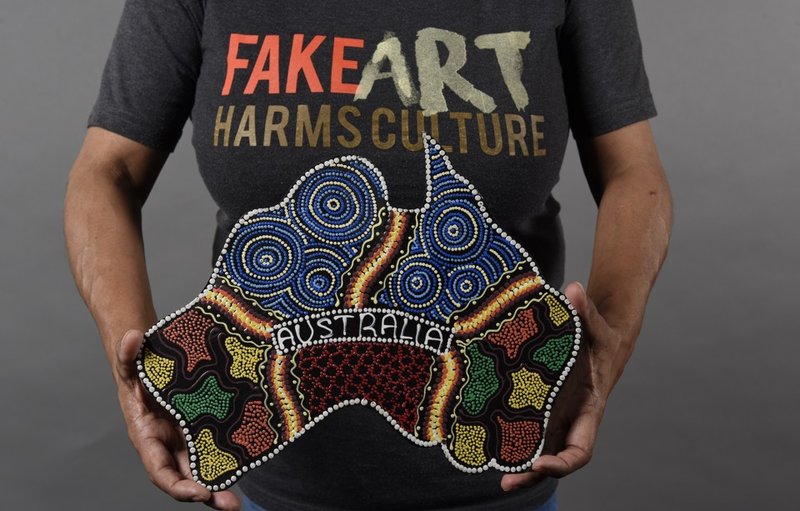Govt report confirms Fake Indigenous Art Harms Culture but fails to ban it
Photo by Jamie James, 2017
Photo by Jamie James, 2017

The Productivity Commission released its draft report on 19 July following a study that examined the value, nature and structure of markets for Aboriginal and Torres Strait Islander arts and crafts. The report includes draft recommendations for the Australian Government to address gaps and deficiencies in these markets.
The Productivity Commission is welcoming responses to their draft report with a submission deadline by Monday 29 August 2022.
Among the recommendations in this draft report is a new law that strengthens protection for aspects of Indigenous Cultural Intellectual Property (ICIP) used in visual arts and crafts. ICIP refers to the rights First Nations people have, and want to have, to protect their traditional arts, heritage and culture. The draft report notes that ICIP is sometimes used without the permission (or authorisation) of Traditional Custodians, out of context, and without economic benefits flowing back to Aboriginal and Torres Strait Islander people and communities. This commonly occurs when inauthentic visual arts and crafts are produced.
The report acknowledges that fake Indigenous art and products are a pervasive and longstanding problem. They disrespect and misrepresent culture and, by misleading consumers and denting confidence in the market, they deprive Aboriginal and Torres Strait Islander artists of income. The Productivity Commission notes that inauthentic products accounted for well over half of spending on Aboriginal and Torres Strait Islander souvenirs in 2019-20.
NAVA raised concerns in its submission to the study regarding stylistic and conceptual appropriation of Aboriginal and Torres Strait Islander art and designs, which result in both cultural and economic harms. Our submission also noted that some non-Indigenous artists are appropriating Aboriginal styles, winning prizes and benefiting financially at the expense of Aboriginal artists.
Disappointingly the report recommends mandatory labelling of inauthentic products rather than a flat out ban on all inauthentic Indigenous arts and products. A ban has long been called for as part of the Fake Art Harms Culture campaign launched in 2016 as a collaboration between the Indigenous Art Code, Arts Law Centre of Australia and the Copyright Agency.
NAVA encourages artists, arts workers, organisations, audiences and friends to make a submission via the Productivity Commission’s website before the 29 August 2022 deadline. Join NAVA in pressuring the Government to commit to legislation to remove inauthentic Aboriginal and Torres Strait Islander arts and crafts from the Australian market, and protect Indigenous Cultural and Intellectual Property more broadly.